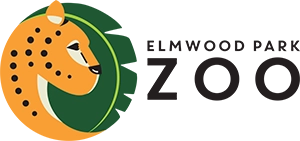Meet our Eagles
Noah –
At just 8 weeks old, Noah suffered an 80 foot fall and landed on his head. Noah spent the first year of his life recovering from brain and eye injuries in the Hospital for Large Animals at the Cummings School of Veterinary Medicine. Deemed unfit to be released back into the wild, Noah was placed in a rehabilitation facility where he spent several years assisting humans with educational outreach programs. Elmwood Park Zoo acquired Noah in December 2008. As one of the Zoo’s Educational Ambassadors, he helps teach people of all ages about wildlife conservation. In addition to regular zoo and program appearances, Noah has attended games, training camp, and other events as an official live mascot for the Philadelphia Eagles football team since 2013.
Reggie –
Reggie came to us from the Raptor Education Group, Inc. (REGI – hence his name) in Wisconsin. He was brought into the rehab when he was an immature male in August of 2011. He was believed to have been injured due to a collision with a truck. He sustained several fractures to his left wing, which resulted in amputation of the wing tip, making him unable to fly and non-releasable to the wild. Reggie was transferred to the Elmwood Park Zoo in 2011 where he initially joined the eagle flock on exhibit in Eagle Canyon. The keepers noticed that because of his very docile and nice-guy demeanor he was often overshadowed by other dominant eagles. We felt he might be a great addition to the Eagle Ambassador team so we transferred him to the education department in August of 2018, and Reggie made his debut as an official live mascot for the Philadelphia Eagles in the fall of 2019.
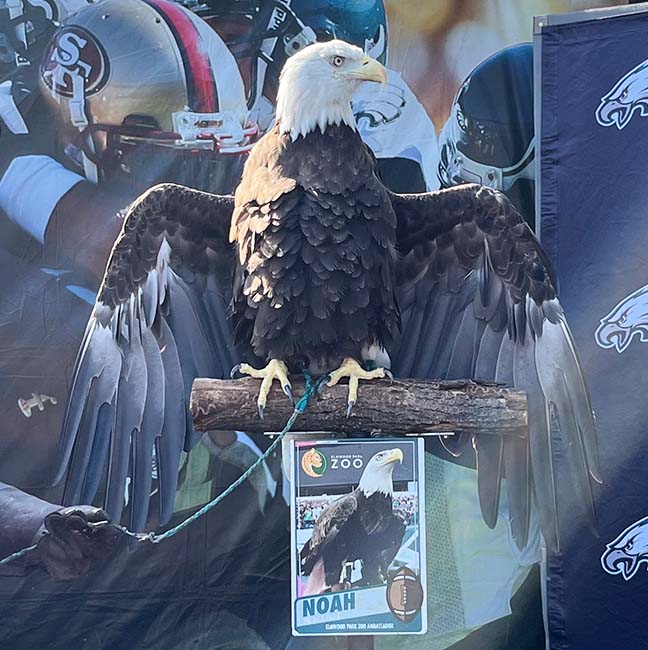
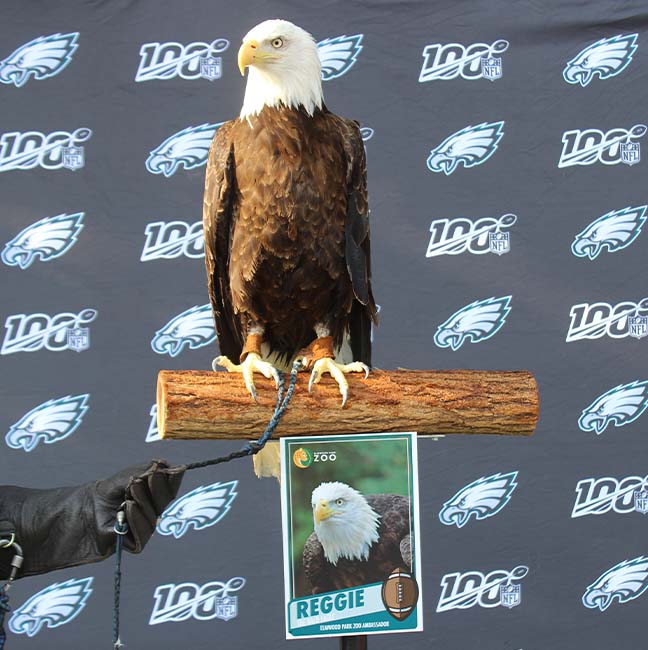
Noah and Reggie are in possession of Elmwood Park Zoo by the authority of the U.S. Fish and Wildlife Service.
Our Eagle Team
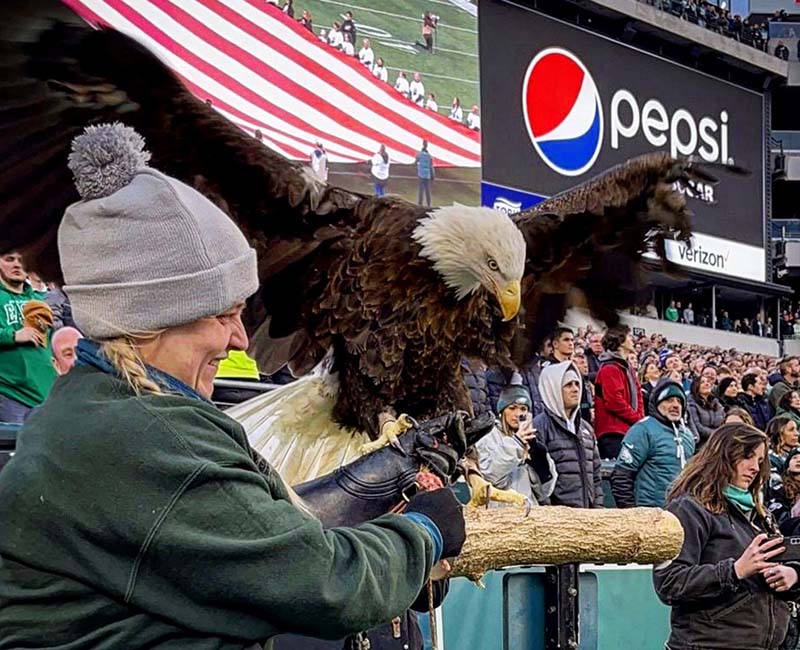
Laura Soder, Eagle Team Lead; she handles both Noah and Reggie for high profile events, oversees all eagle training, and coordinates all live mascot appearances and general educational programming involving the birds. She is Reggie’s primary trainer, and has been working with him since his first start as an ambassador. She has been working with birds of prey at various institutions for 13 years, and with Elmwood Park Zoo since 2017. Her favorite part about this job is watching the birds come out and be comfortable, confident, and really shine for the crowds. It’s a testament to a lot of hard work, as working with a generally solitary animal can be very challenging. So when you build that mutual trust and ability to communicate effectively with the bird as a trainer, even in highly distracting situations, it’s really amazing. When the bird is comfortable and confident, it allows visitors to get the best experience and hopefully walk away with a desire to help protect this species.
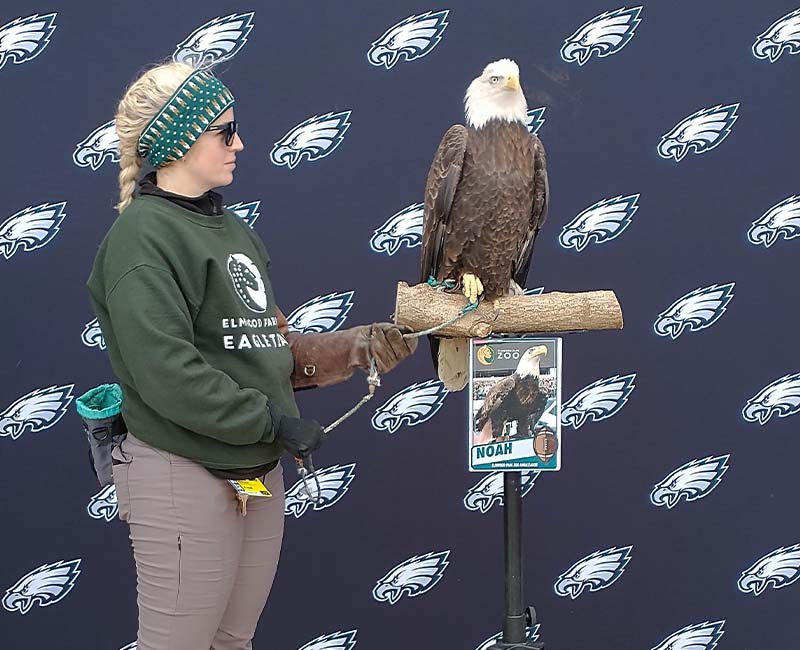
Rebecca Oulton, Eagle Trainer; she is Noah’s primary trainer, and his main handler for high profile events. She is the secondary trainer for Reggie, and has also been working with him since the very beginning. She has been working with birds of prey at Elmwood Park Zoo for 7 years. Her favorite part of the job is watching Noah and Reggie grow into their role as ambassadors and mascots, and seeing the looks of awe on guests’ faces when they meet them up close. Whether it’s because they appreciate how the bald eagle has struggled as a species in the wild not so long ago, or because they’ve never had an opportunity for a close encounter, it’s always rewarding. And she loves how it prompts people to share all the stories of seeing eagles in the wild.

Elisa Tyler, Eagle Trainer; she has been working with Reggie as a handler and assistant trainer for the past two years, building up a relationship and the experience needed to handle him at high profile events in the near future. She has been working with birds of prey at Elmwood Park Zoo for 9 years. Her favorite part of the job is learning all of the intricacies of the birds and their behavior. She enjoys being able to share Noah and Reggie’s stories, and the conservation success story of bald eagles in general, with visitors. Helping people understand how they came under our care and how the public can continue to help protect the species makes all the hard work that goes into these appearances worth it.
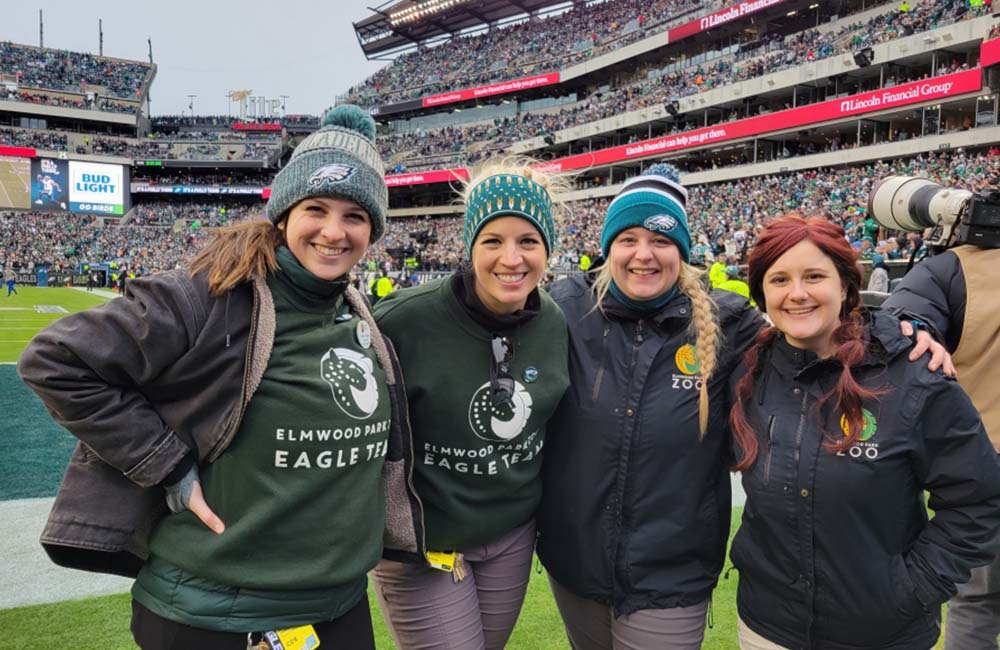
Eagle Training
When working with our ambassador eagles, we use training methods that focus on positive reinforcement and providing the animals as much safe choice and control in their daily routine as possible. Birds of prey are predators, and spend much of their time in the wild hunting for food. Our eagles do not have this opportunity due to their injuries, so instead we provide them enrichment and a positive training experience by using their daily diet as rewards. This is similar to how you might give your dog a bone for sitting on cue, except eagles are more into fish and rats than dog treats!
This training allows our eagles to participate voluntarily not only in their role as ambassadors and mascots, but also in their care. Both Noah and Reggie are trained to do a variety of behaviors as part of their daily routine; they step up onto a glove worn by the trainers so that they can be moved to different locations; they step onto a scale so that we can weigh them to ensure they are healthy and motivated; they step into a crate for transport or while we perform cleaning in their enclosure.
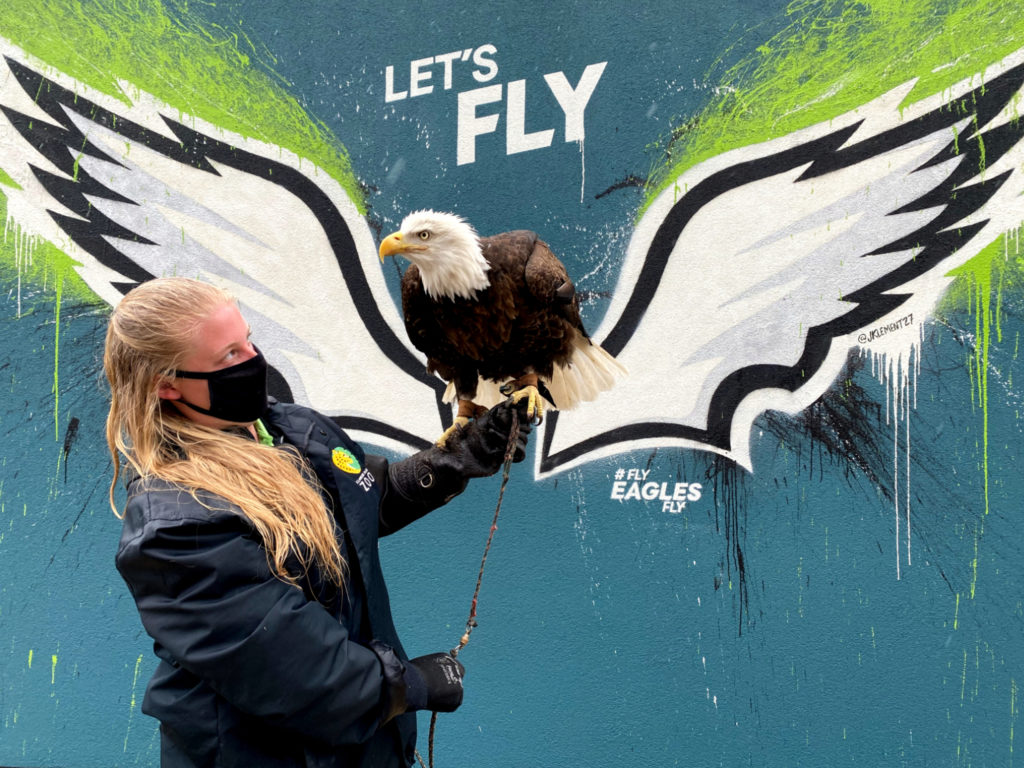
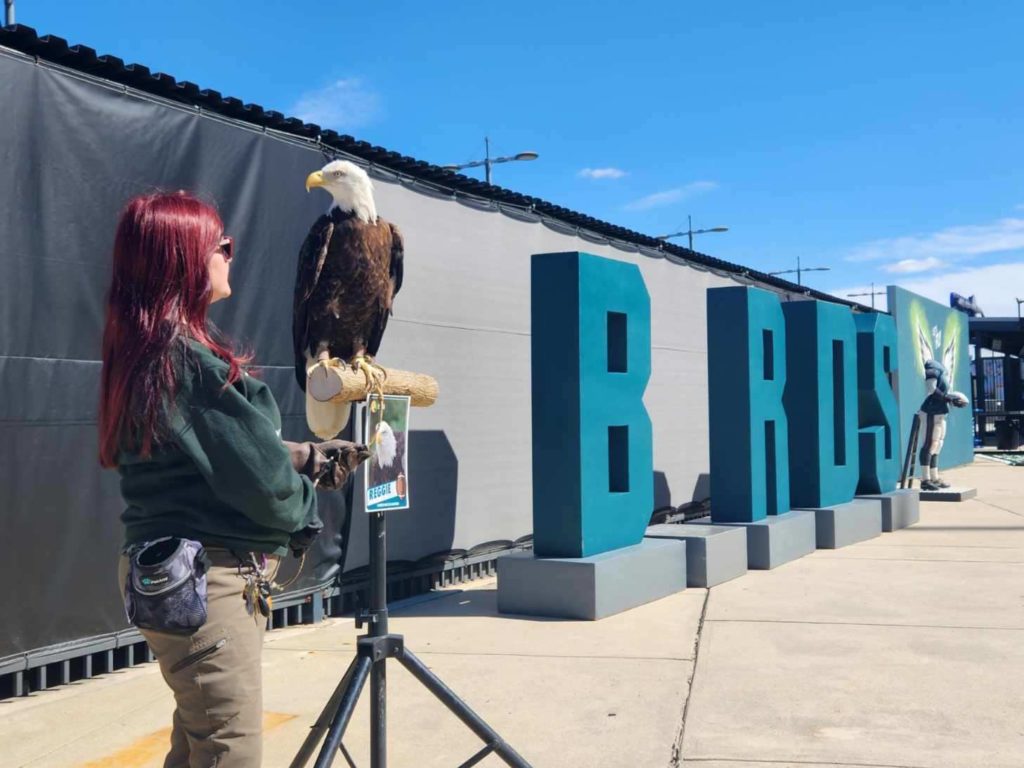
As a mascot, these birds encounter much more intense situations than our average ambassador animal; they are often surrounded by thousands of fans, with lots of distractions and noise. While we cannot predict everything, we do our very best to make sure Noah and Reggie are comfortable in this highly variable, high stakes environment. One way we do this is practice! Both birds routinely come out on zoo grounds to meet with visitors and make sure they are used to hearing and seeing the different aspects of large groups of people. The Philadelphia Eagles organization also allows us to visit Lincoln Financial Field outside of game day to make sure our birds get as much exposure to the plaza and field as possible. The more familiar they are with the location and the general expected distractions (such as cheering, strange outfits, cameras, running children) the more resilient they are when new and unexpected situations arise. Because eagles have such incredible eyesight and very fast reflexes, training them can be a challenge; sometimes they see things that we don’t know exist! But we spend a lot of time working with each bird, getting to know their personality, what they like (or dislike), and what their body language looks like when they are calm, comfortable, nervous or excited. The slightest shift in feather placement on their head or body can actually say a lot.
When we are out at events, the trainer handling the bird has one job: to focus on the bird and watch their body language. They are ready with lots of delicious snacks to offer the bird as needed, whether as a distraction from something that may be new or intimidating, or as a reward when the bird is calm and relaxed and really doing a great job! The rest of the staff at the event help to interpret to guests or act as crowd control so that the trainer can be completely attuned to the bird, its comfort and its safety. We build up a positive relationship, with lots of trust, and continuously work to make sure we are communicating as best we can with them as their trainers; it is our job to make sure they are safe and comfortable so that they are set up for success in their job. As mascots, and ambassadors for a species that was not long ago almost extinct, that job is so important, and we are incredibly honored to be able to work alongside them!
Written by:
Laura Soder (Interim Director of Education / Manager of Ambassador Animal Engagement) at Elmwood Park Zoo
Elisa Tyler (Interim Director of Education / Manager of Education Engagement) at Elmwood Park Zoo
Rebecca Oulton (Educator) at Elmwood Park Zoo

